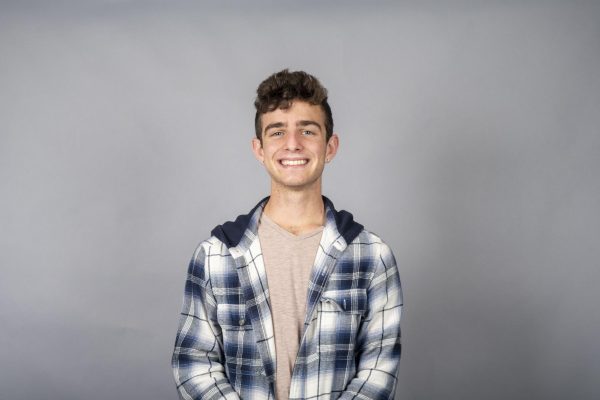Forensic psychology: it might bring to mind police tape, dimly lit crime scenes, dead bodies, fingerprint tests and Sherlock Holmes. But senior Adriana (Adi) Sowders knows the reality—handling casework at the intersection of law and psychology—as an intern in the office of a forensic psychologist, Dr. Janine Shelby.
Independent of the field of forensic science, which is where the cop-show detective work happens, forensic psychology is “the application of psychological knowledge to the law, in order to help judges make decisions,” as Shelby describes it. Sowders gets a taste of this in her day-to-day administrative tasks at the office.
“[Shelby] typically starts off with a briefing on current cases to give me context. Then, I might grade some psychological exams that she administers, or I’ll edit a report that she writes up or I will check the validity of the opposing litigators,” Sowders said. “I’ll go and do some internet stalking and see if [the litigators] are who they say they are.”
Litigators, also referred to as trial lawyers, are an example of the legal side of forensic psychology, since Shelby takes the stand in court cases to testify on behalf of the defendants or prosecution to determine the mental state of the accused. Sowders helps ensure that Shelby is prepared to go to court ahead of the trial.
“I’ll edit [Shelby’s] report because not only does she give something verbally, but she’ll have to give a written document in court. Or sometimes she wants to be tested, because when she’s out on the stand, the opposing litigators are trying to make her look not credible, so the jury thinks what she’s saying isn’t true,” Sowders said. “She has to make sure that she knows all her facts. Not only does she have to know the case, but she has to know all the psychological terms that she’s using. I’ll ask questions for her to elaborate on, and then she’ll explain it.”
In addition to preparing Shelby for her depositions, Sowders proofreads important case documents, which necessitates a solid understanding of grammar and spelling, but also of psychological and medical conditions. Sowders learned this information through RUHS’s AP Psychology class, which inspired her to take the internship, in addition to knowing Shelby as the mom of her best friend.
“I wanted to enhance my knowledge in the field [after] taking AP Psych last year [since] it was my favorite class,” Sowders said. “I loved the content, and I would ask [Shelby] questions about her work because she would have interesting cases. She’d tell me what psychological disorders are in question, and before she could explain it, I typically beat her to it because I was able to reference what I was learning in AP Psychology.”
Law is another aspect of the job that is “interesting” to Sowders, who is considering majoring in Political Science or Psychology in college.
“I didn’t realize how closely she worked with the law or that they even intertwined at any point. So I was able to learn the [lawyer] jargon,” Sowders said.
Sowders has had some memorable cases on the job, occasionally including sad or mature content, to the point where Sowders’ parents needed to sign and agree to let her work in the office.
“The craziest thing I can say was that I had to sign an NDA (Non-Disclosure Agreement) so I can’t talk about the cases,” Sowders said. “Although it was really cool when the [public] Johnny Depp v. Amber Heard case came about, they had a forensic psychologist as part of the case, and [Shelby] would show me clippings. So I was able to see what she does, but in a different setting, in a celebrity case.”
After working together for about a year, Shelby has seen how Sowders’ personality made her an ideal candidate for this internship.
“Adi is articulate, incredibly detail-oriented, responsible, goes the extra mile, is also great with organizing and is willing to do varied tasks,” Shelby said. “In the cases in which I’m involved, the bar for accuracy is very high. Adi double checks her work, so her quality conscientiousness is very valuable because if I make a mistake, the consequences can be very large.”
While Shelby benefits from the increased efficiency in the office, she also sees growth in Sowders throughout the internship.
“Adi discovers each new task and I am able to give her good feedback, so when she masters it, it seems like she’s feeling an extra boost of confidence,” Shelby said. “This is so important for seniors, as they’re about to make decisions about what happens in the next phase of their life. Sometimes there can be some self-doubt or insecurity. So I certainly wish for everybody to have an internship [where] they’re getting the kind of feedback that reinforces the best of who they are and gives them the extra needed security that they can master the next phase [of life] as well as their mastering the tasks of their internship.”



